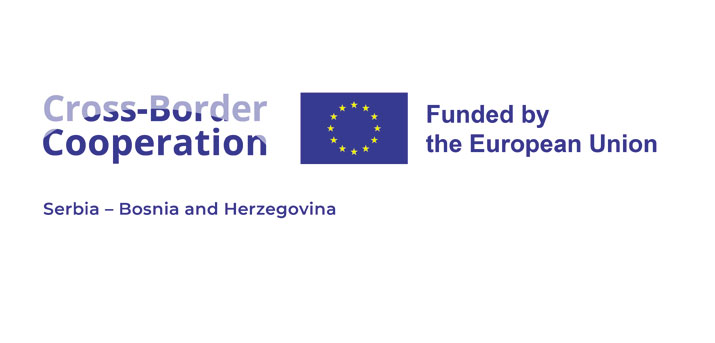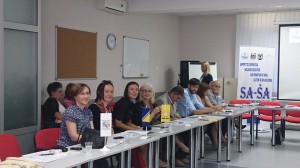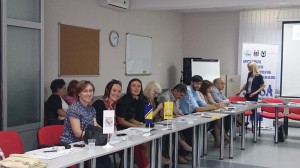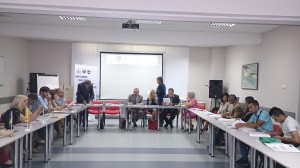Within the implementation of the cross-border project “SAŠA – Support to Cooperation, Inclusion, Education and Promotion of Roma Culture in Bosnia and Herzegovina and Serbia’, Conference „Analysis of achieved changes in the Roma community in the time period 2005-2013” was held in Šabac on 3 July.
The project is implemented by the City of Sarajevo, Sarajevo Regional Development Agency SERDA, Hilfswerk Austria International from Bosnia and Herzegovina and the National Council Roma National Minority – regional office Šabac from Serbia under the IPA cross-border program B&H – Serbia.
The goal of the conference was to present the project and inform the public about results of analyses of changes that have been introduced in the Roma community since 2005 onwards, from the aspects of Roma national community, state authorities and civil society, in the fields of education, health care, social inclusion, employment, housing and legal visibility. The conference included panel discussions on the following topics: Social inclusion and poverty reduction; Measures taken in the field of education; Measures taken in the field of health; Active employment policy; Analysis of achieved changes from the aspect of the Protector of citizens; Access to personal documents; Examples of good practice – PRAXIS; Changes in the field of housing – displacement and legalization of Roma settlements; Changes in the Roma community in the border area; Changes in the Roma community in municipalities of Loznica, Bogatic, Koceljeva, Šabac…The conference brought together representatives of project partners from B&H and Serbia, eminent officials from academic, political and cultural life of B&H and Serbia and many other guests.
Organization of the conference is the first official activity under the SA-ŠA Project, which will establish the cross-border cooperation between NGO and Roma associations in the border area of the two countries, aiming at establishment of an informal network and joint activities on resolving common problems. The Project pays special attention to preservation of Roma identity by promoting their culture and tradition. The planned project activities also include development of education models for the Roma population, aimed at increasing their knowledge and skills, in order to be more competitive on the labour market. Workshops and field visits to Roma communities were also foreseen, in order to better inform them about their rights and civil duties, healthcare etc. Furthermore, owing to this project, the general public – citizens will get the opportunity to obtain information about problems that Roma population is facing on a daily basis, but also the chance to meet them in a different way, through presentation of successful life stories of Roma population members who contribute to the society in which they live with their work, all of the above aiming to break the stereotypes about Roma.








